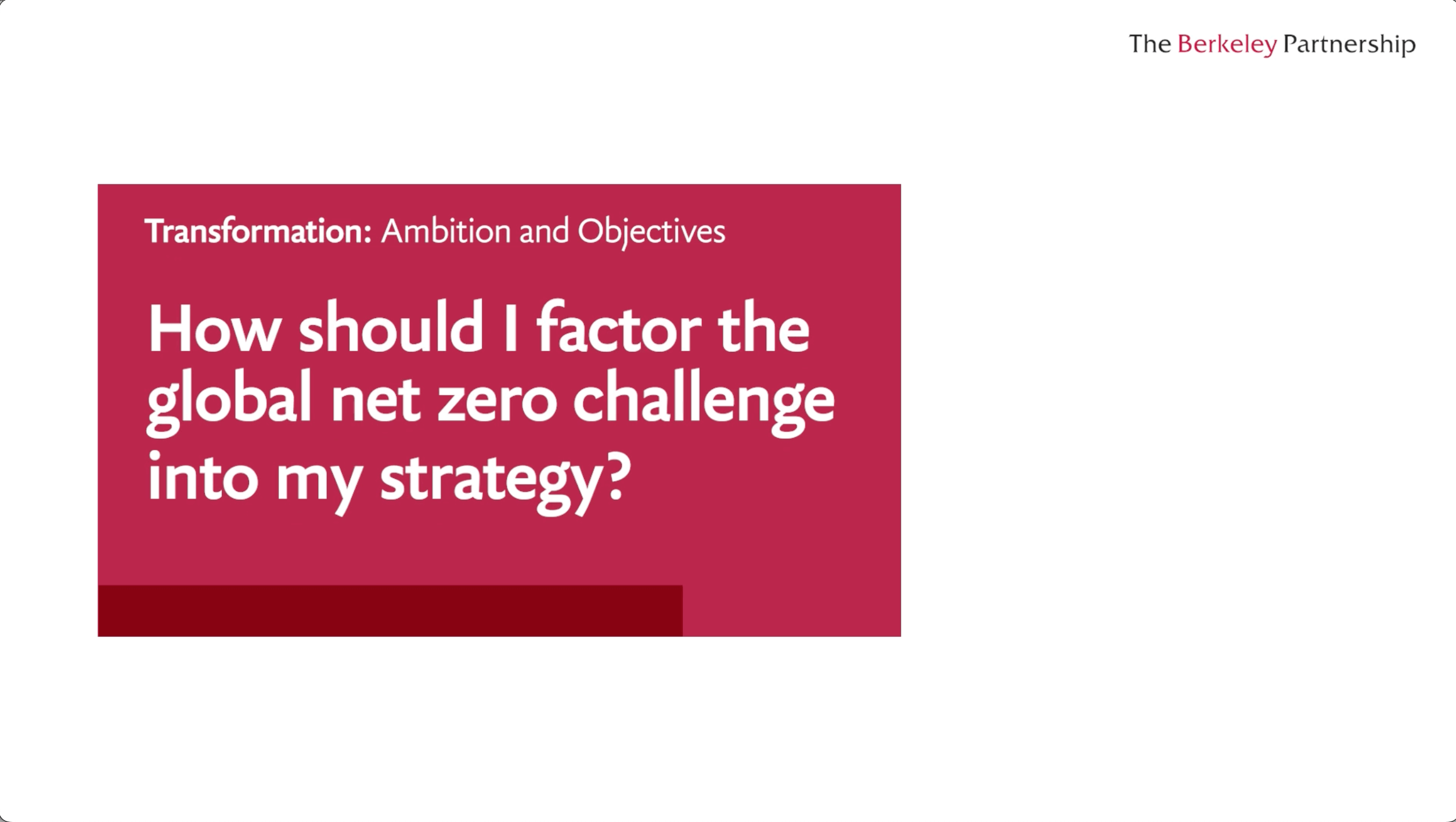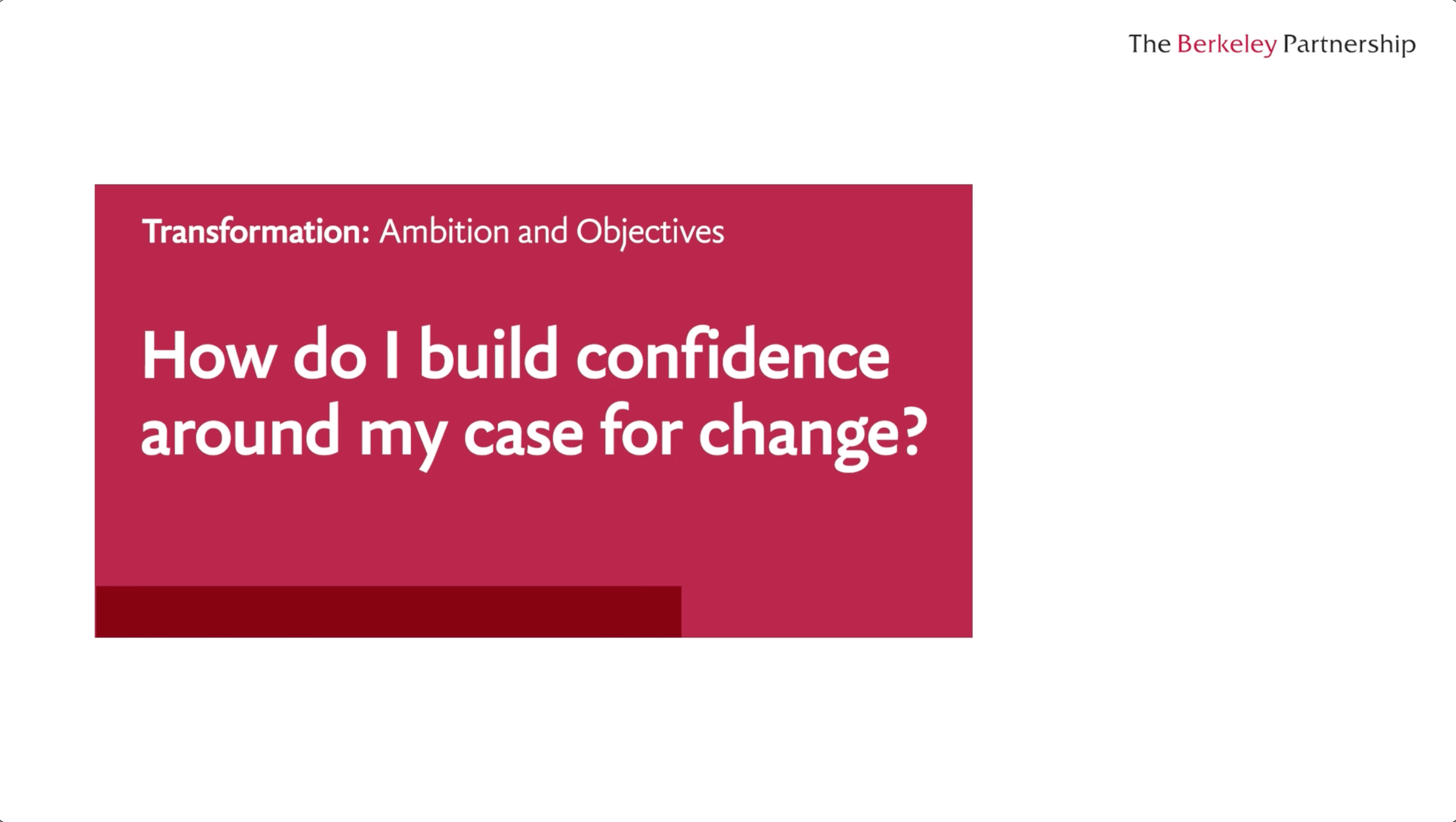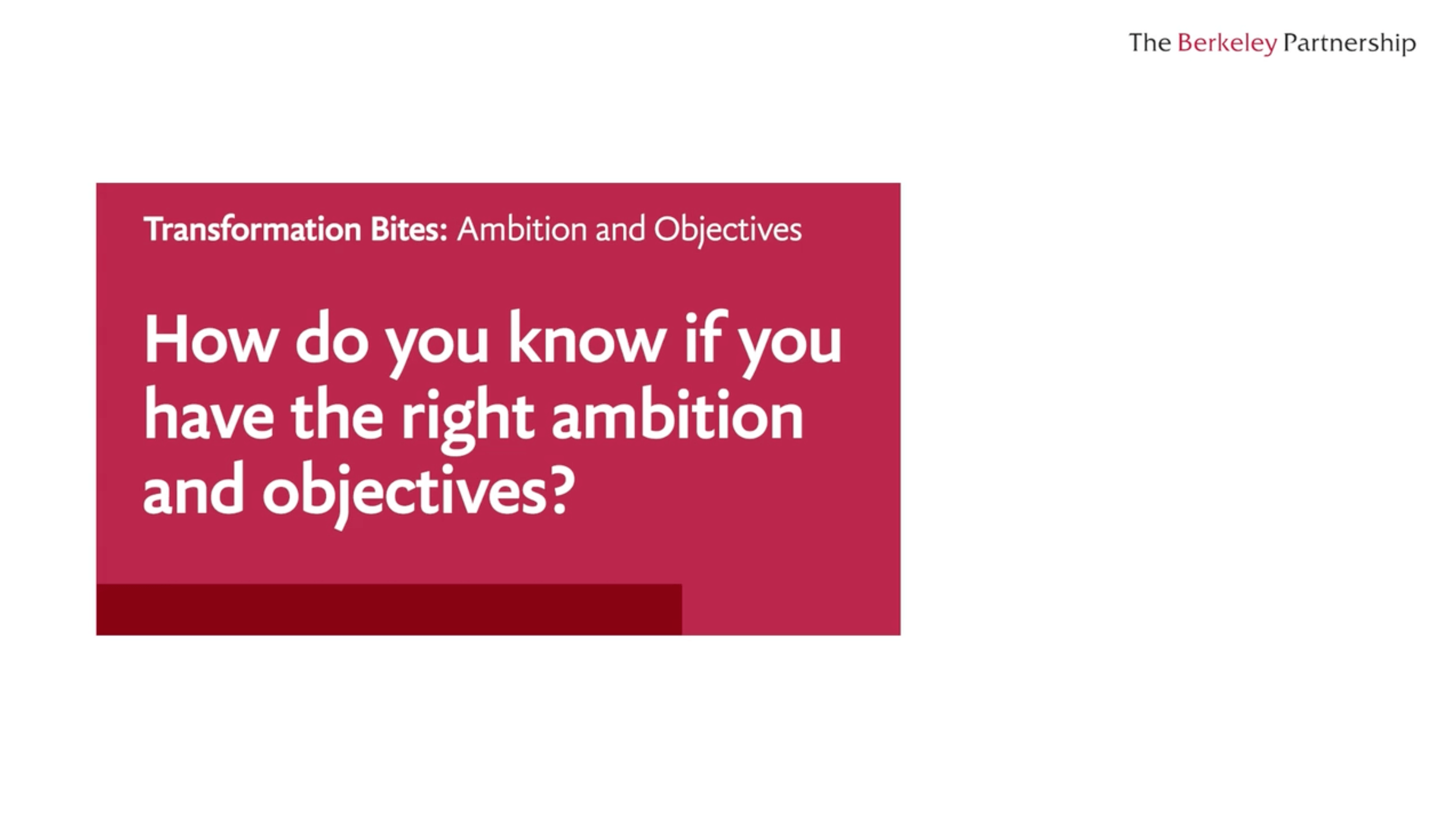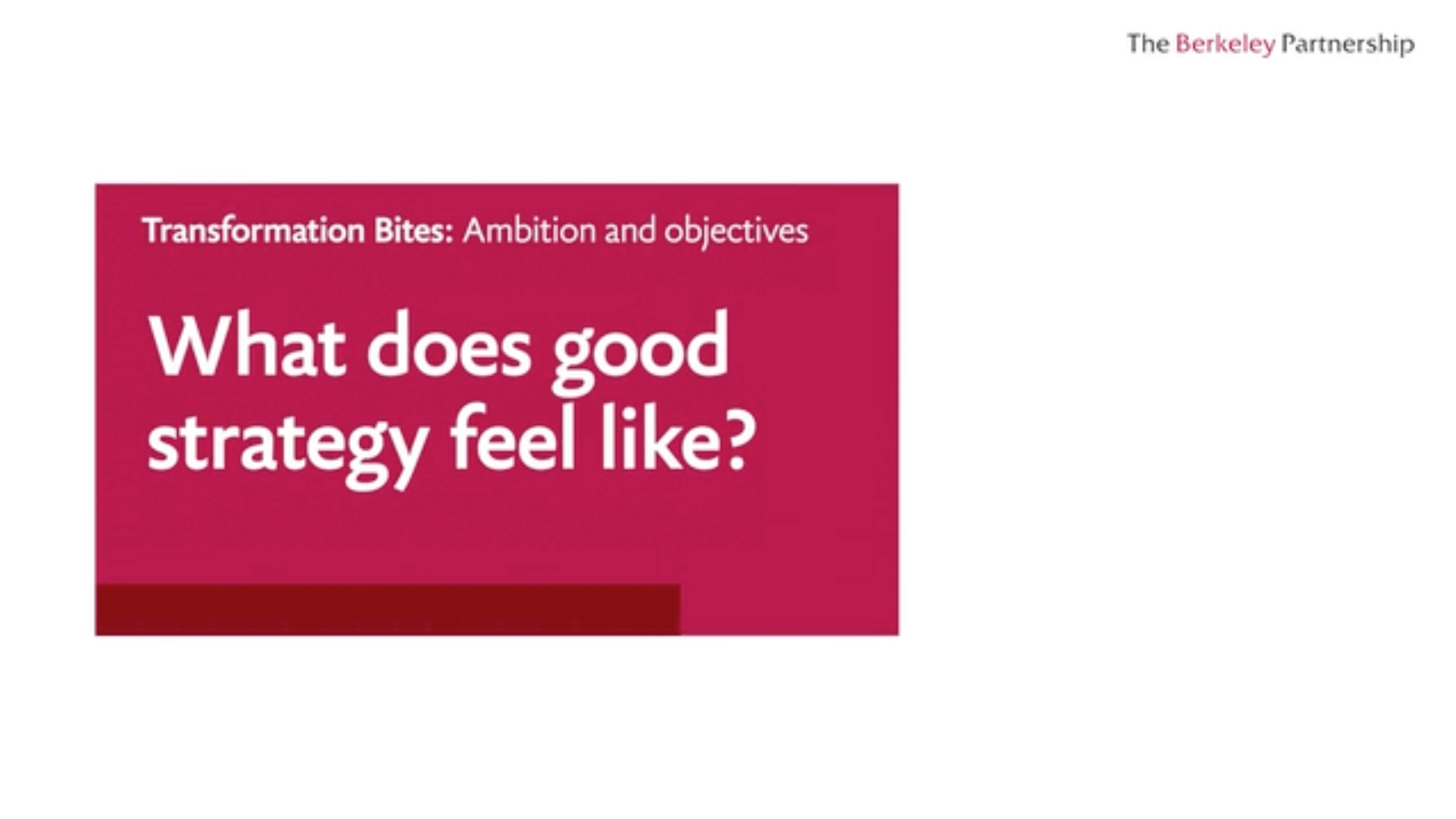Transformation
Transformation: Ambition and objectives
Watch now: How do you ensure your strategy evolves and stays relevant?
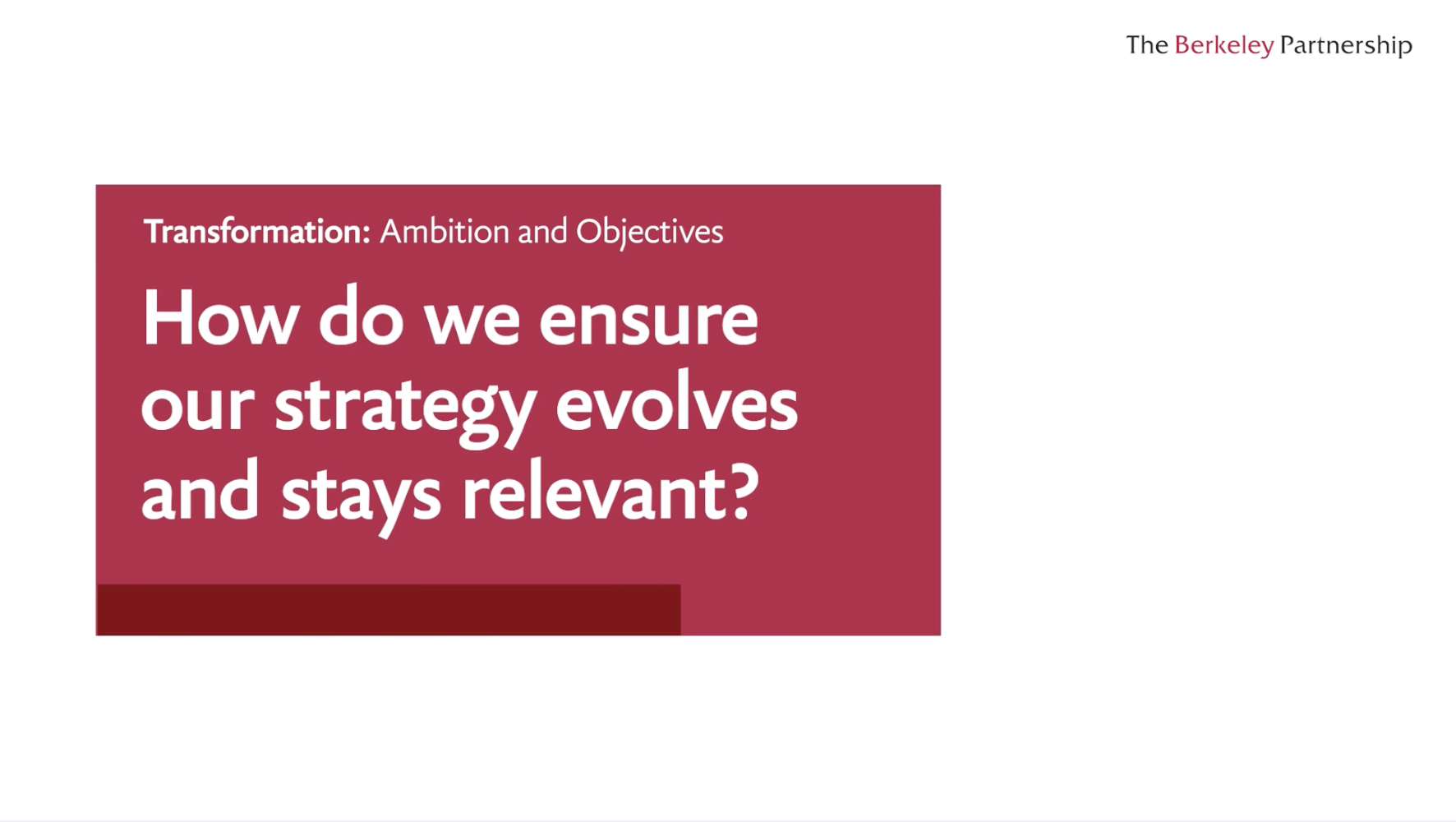
Natalie: To remain relevant an organisation needs to be able to pivot and adapt to changing demands, trends and market conditions, anticipating the correct mix of capabilities resourcing needs and technology is key. Mature companies build an infrastructure of leading and lagging indicators of strategic performance. They create clarity around accountability of ownership of those metrics, and create incentive structures around them to reward delivery. We often tell clients, what gets measured gets done, and getting those metrics right is crucial.

